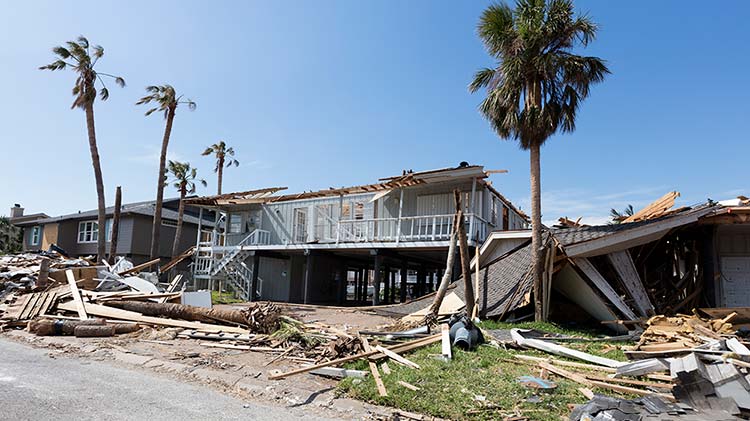What to do after a hurricane
Even if you prepare for a hurricane perfectly, the storm might still cause damage. That’s just the nature of hurricanes.
Once the storm itself has passed, you’ll be faced with the job of recovering and getting your life back to normal. Here’s how to help do that as safely and efficiently as possible.
- Don’t return until there’s an official all-clear. If you evacuated, wait until authorities say it’s safe to return. Coming back too soon could strain already shaky infrastructure and put you and your family in danger.
- Watch for additional emergency alerts on your phone, or stay tuned to NOAA Weather Radio or a local alert system for current information and instructions.
- Avoid flood waters. Whether you sheltered in place or evacuated, avoid wading and driving through floodwaters, which can contain debris and downed power lines.
- Stay clear of fallen power lines or broken utility lines.
- Report downed power lines or broken gas lines immediately.
- If you're driving and see a downed power line in your path, stay in your vehicle and call 911 or the electric utility.
- Power outages are common after a hurricane. Save your phone battery for emergencies and to let family and friends know you’re safe. Use battery-powered lanterns instead of candles.
- If you haven't lost power but smell something burning, see frayed or sparking wires or suspect a gas leak, call the professionals.
- Eat and drink with caution. Avoid drinking tap water until you’ve confirmed that it’s safe. Don’t eat refrigerated foods that were warmer than 40ºF for more than two hours.
- Emergency resources are likely to be constrained, so do everything in your power to avoid putting yourself in danger.
- Wear protective gear when cleaning. After a flood, anything from falling branches to mold could cause health problems, so proceed with caution as you clean up.
If you've been affected by the recent hurricane in your area and need to report your claim, text the word “CLAIM” to 62789 to receive a link or you can report easily through statefarm.com®, our State Farm mobile app, contacting your State Farm agent or calling 800-SFClaim 800-732-5246800-732-5246.
If you determine your home sustained damage, to protect your property from further damage or loss, be sure to make reasonable and necessary temporary repairs. Keep an accurate record of repair expenses along with any photos of damage. If you have a covered loss, these repairs may be reimbursed by State Farm.
Additional hurricane recovery resources
Below are some resources that may help you with your recovery.
- Center for Disease Control and Prevention
- Institute for Business and Home Safety
- Federal Alliance for Safe Homes
For more tips, check out the EPA’s guide to recovering from a hurricane.
